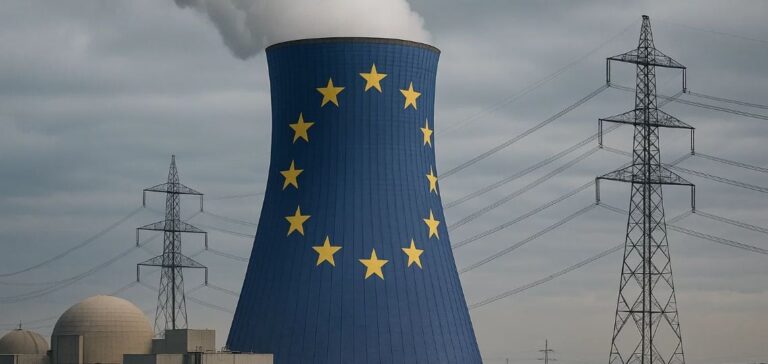The European Commission has unveiled a temporary state-aid framework that eases national subsidies for the low-carbon industry, placing nuclear power on an equal footing with renewables for the first time. The scheme, effective until the end of 2030, replaces the arrangement adopted in 2022 to address soaring energy costs. Its stated aim is to accelerate the deployment of strategic value chains while maintaining fair competition within the single market. Member States must notify their programmes, yet Brussels promises faster case reviews.
Technological neutrality and nuclear power
Technological neutrality forms the text’s main innovation. At the request of France, Sweden and Poland, nuclear energy now receives the same treatment as wind or solar power in reducing CO2 emissions. Aid may cover reactor construction and component manufacturing, including future small modular reactors. Connaissance des Énergies reported on 25 June that the Commission “will conduct a swift assessment” of each file to safeguard legal certainty.
The framework also permits incentives through grants, loans or guarantees for low-carbon hydrogen projects, whether sourced from nuclear or renewable electricity. Member States may support factories producing solar panels, wind turbines, batteries or heat pumps, as well as storage and transport infrastructure. National authorities can grant accelerated tax credits to lower capital costs. The Commission believes these measures will cut financial risk for private investors and ease industrial scale-up.
Support for industrial competitiveness
Germany secured the option to offset electricity prices temporarily for energy-intensive industries in return for decarbonisation commitments, cushioning the impact of halted Russian hydrocarbon imports. In parallel, States may remunerate back-up plants, notably gas-fired units, to keep the grid balanced when renewables are intermittent. Brussels specifies that such mechanisms must remain time-limited and be phased out in favour of lower-carbon technologies.
The scheme finally covers direct industrial decarbonisation through electrification, biomass, carbon capture and storage or hydrogen. Capitals may establish public equity funds, concessional loans or guarantees to share long-term investment risk. Beneficiary firms must publish verifiable emission-reduction plans. The new regime will expire on 31 December 2030, when the Commission intends to reassess the competitiveness of Europe’s low-carbon industry.






















